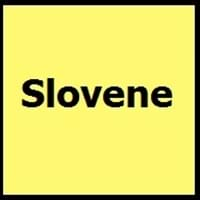Slovene vs Cebuano
Countries
European Union, Slovenia
Philippines
National Language
Austria, Croatia, Hungary, Italy, Slovenia
Philippines
Second Language
Not spoken in any of the countries
Philippines
Speaking Continents
Europe
Asia
Minority Language
Austria, Hungary, Italy
Not spoken in any of the countries
Regulated By
Slovenian Academy of Sciences and Arts
Visayan Academy of Arts and Letters
Interesting Facts
- The Freising Monuments is the oldest preserved records of written Slovene from 10th century.
- The first Slovene book was printed in 1550.
- About one-fifth of the population of the philippines speak cebuano and are second largest ethnolinguistic group in the country.
- Cebuano contains many words of Spanish origin.
Similar To
Serbo-Croatian
Hiligaynon Language
Derived From
Not Available
Island of Cebu
Alphabets in
Slovene-Alphabets.jpg#200
Cebuano-Alphabets.jpg#200
Writing Direction
Left-To-Right, Horizontal
Not Available
How Are You?
Kako se imate?
Kumusta man ka?
Good Night
Lahko noč
Maayong Gabii
Good Evening
Dober večer
Maayong Gabii
Good Afternoon
Dober dan
Maayong Hapon
Good Morning
Dobro jutro
Maayong Buntag
Sorry
Oprostite
Ikasubo ko
I Love You
Ljubim te
Gihigugma ko ikaw
Excuse Me
Oprostite
Ekskyus mi
Dialect 1
Prekmurje Slovene
Boholano
Where They Speak
Hungary, Slovenia
Bohol
How Many People Speak
Not Available
Dialect 2
Resian
Southern Kana
Where They Speak
Italy
southern Leyte
Dialect 3
Styrian
North Kana
Where They Speak
Slovenia
northern part of Leyte
How Many People Speak?
Not Available
Speaking Population
Not Available
Second Language Speakers
Not Available
Native Name
Not available
Visayan
Alternative Names
Slovenian, Slovenscina
Binisaya, Bisayan, Sebuano, Sugbuanon, Sugbuhanon, Visayan
French Name
slovène
cebuano
German Name
Slowenisch
Cebuano
Pronunciation
[slɔˈʋèːnski ˈjɛ̀ːzik], [slɔˈʋèːnʃt͡ʃina]
Not Available
Ethnicity
Slovenes
Cebuano people
Origin
972-1093
16th century
Language Family
Indo-European Family
Austronesian Family
Subgroup
Not Available
Not Available
Branch
Not Available
Not Available
Early Forms
No early forms
No early forms
Standard Forms
Slovene
Standard Cebuano
Language Position
Not Available
Signed Forms
Not Available
Not Available
Scope
Individual
Individual
ISO 639 1
sl
No data Available
ISO 639 6
Not Available
Not Available
Glottocode
slov1268
cebu1242
Linguasphere
53-AAA-f
No data Available
Language Type
Living
Living
Language Linguistic Typology
Not Available
Verb-Subject-Object
Language Morphological Typology
Fusional
Not Available
Slovene and Cebuano Language History
Comparison of Slovene vs Cebuano language history gives us differences between origin of Slovene and Cebuano language. History of Slovene language states that this language originated in 972-1093 whereas history of Cebuano language states that this language originated in 16th century. Family of the language also forms a part of history of that language. More on language families of these languages can be found out on Slovene and Cebuano Language History.
Slovene and Cebuano Greetings
People around the world use different languages to interact with each other. Even if we cannot communicate fluently in any language, it will always be beneficial to know about some of the common greetings or phrases from that language. This is where Slovene and Cebuano greetings helps you to understand basic phrases in Slovene and Cebuano language. Slovene word for "Hello" is Halo or Cebuano word for "Thank You" is Salamat. Find more of such common Slovene Greetings and Cebuano Greetings. These greetings will help you to be more confident when conversing with natives that speak these languages.
Slovene vs Cebuano Difficulty
The Slovene vs Cebuano difficulty level basically depends on the number of Slovene Alphabets and Cebuano Alphabets. Also the number of vowels and consonants in the language plays an important role in deciding the difficulty level of that language. The important points to be considered when we compare Slovene and Cebuano are the origin, speaking countries, language family, different greetings, speaking population of these languages. Want to know in Slovene and Cebuano, which language is harder to learn? Time required to learn Slovene is 44 weeks while to learn Cebuano time required is 3 weeks.





